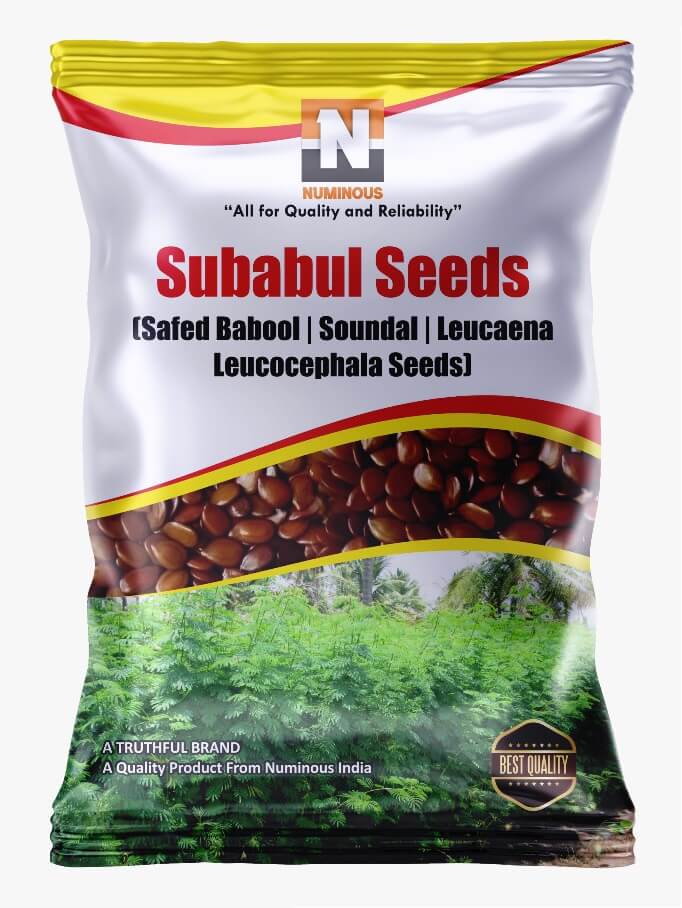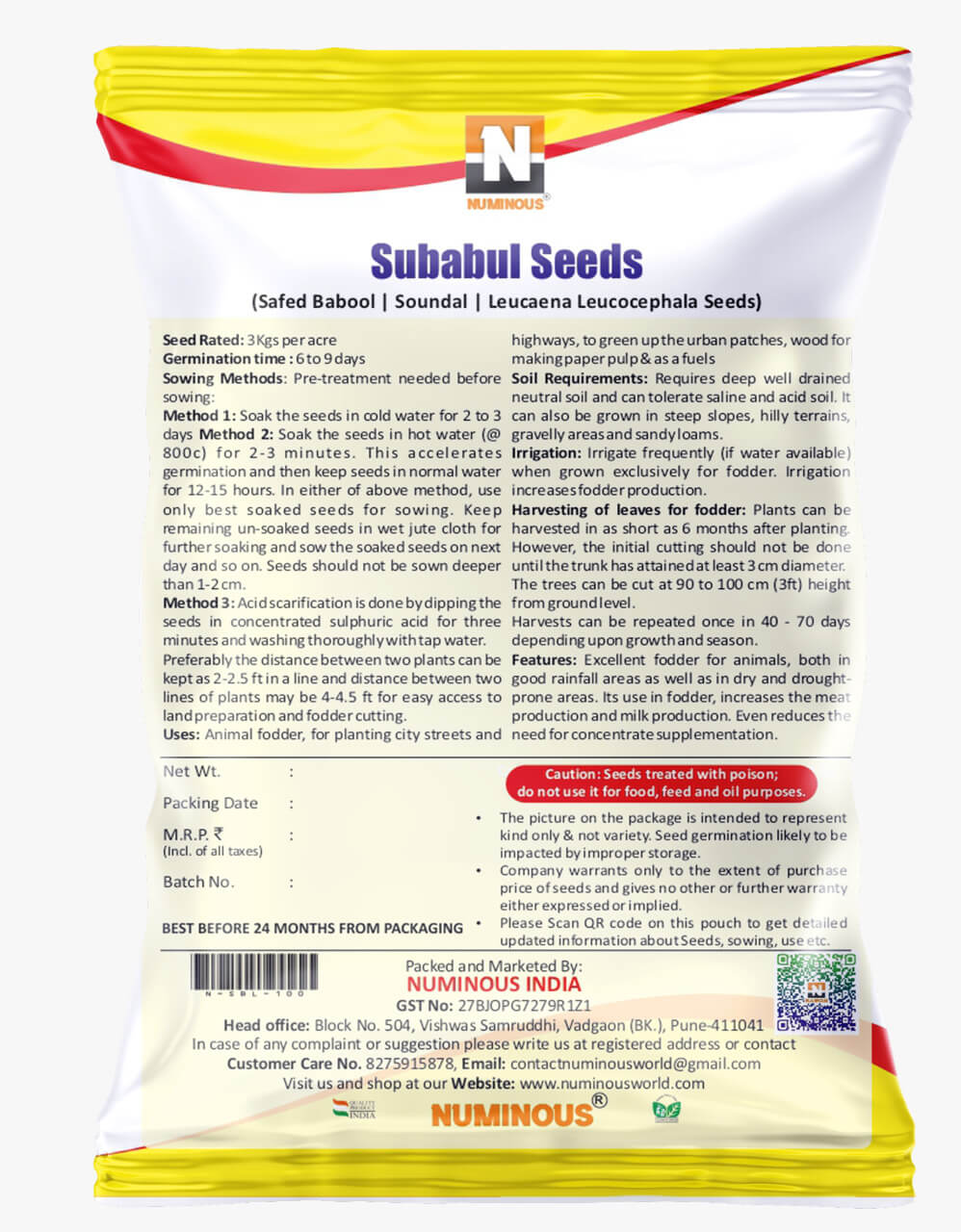SUBABUL is fast-growing, drought resistant, tropical leguminous tree.This multi-faceted, fast-growing tree was introduced in India, in the early 1980s, for its many benefits.
Leucaena provides medium-density wood, high-protein fodder from its leaves and fixes nitrogen in the roots which help to enrich the soil. Leucaena has become a very attractive fodder crop world over together with its value as a fuel and paper pulp crop that gives it great potential for India. Leucaena is excellent fodder for animals, both in good rainfall areas as well as in dry and drought-prone areas. Its use in fodder, increases the meat production and milk production. Even reduces the need for concentrate supplementation. Leucaena contains an anti-nutrition compound Mimosine which can cause toxicity in animals. However, researchers showed that in a short time the gut of animals adapt and degrade Mimosine. Lines of subabul trees are also planted along city streets and highways, to green up the urban patches as quickly as possible.
Irrigation: Irrigate frequently (if water available) when grown exclusively for fodder. Irrigation increases fodder production. Its common names include jumbay, white leadtree, river tamarind, ipil-ipil, and white popinac.







Rampal Katariya –
Tree is full of leaves. Very good